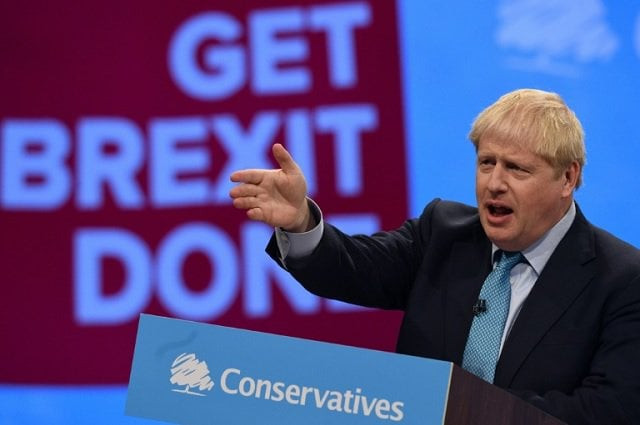Britain, EU need new Brexit draft in week to avoid delay or chaos
If deadline not met, Johnson will have to request extension or see Britain quit without deal

Britain's Prime Minister Boris Johnson said his government was ready for a no-deal Brexit. PHOTO: AFP
European officials insist the deadline of next Friday is not an ultimatum to Prime Minister Boris Johnson’s government but a simple fact of Brussels’ diplomatic calendar.
British and EU negotiators will need a jointly-agreed legal text by then to show to EU capitals ahead of the October 17-18 European Council summit.
Most European diplomats are sceptical that such a detailed deal can be drawn up in time, despite intense ongoing technical discussions with the British side.
And if the deadline is not met, Johnson will either have to request a Brexit extension or see Britain quit the bloc without a deal. An official at the European Council, which represents member states, confirmed that its administrative chief had warned EU ambassadors about the Friday cut-off.
“The secretary general did not impose an ultimatum but noted that we need clarity before the end of next week if the European Council is to succeed,” the official said.
A senior European official confirmed the timeline to AFP, adding that the draft legal text must be agreed between the UK side and EU negotiator Michel Barnier’s team.
This seems a tall order, especially since European officials refuse to characterise the ongoing talks as “negotiations” at all, describing them as a technical dialogue.
Britain’s timeframe to persuade the EU that negotiations are worthwhile may be even tighter than the next Friday deadline would suggest. Johnson’s diplomatic “sherpa” David Frost is in Brussels for talks with Barnier’s team but no date has been set for Britain’s Brexit minister Stephen Barclay to come.
Frost brought with him a British proposal that would see measures put in place to ease trade on the Irish border when Great Britain and Northern Ireland leave the EU customs union.
This would mean removing the so-called “Irish backstop” which under a previous rejected withdrawal agreement would have seen the UK remain in the customs bloc, a key British demand.
But Brussels and Dublin are deeply sceptical of the idea, and senior European officials and diplomats warned that deep disagreements remain over Johnson’s backstop alternatives.
Published in The Express Tribune, October 5th, 2019.
Like Business on Facebook, follow @TribuneBiz on Twitter to stay informed and join in the conversation.



















COMMENTS
Comments are moderated and generally will be posted if they are on-topic and not abusive.
For more information, please see our Comments FAQ